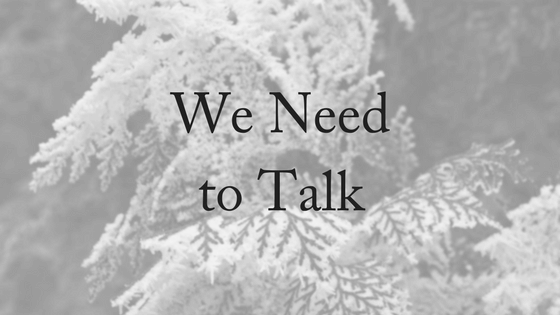If you want to have great estate planning, communication is key to achieving it. Estate planning is something that many of us seem to avoid for a long time. Even worse than that is our ability to discuss it with our families. Communication between parents and children is vital, and there are some good reasons for sons and daughters to have this important conversation with their parents if their parents have not discussed it with them first.
The Planning We Need to Learn to Love
Communication is easy when it comes to things we enjoy or are concerned about. We spend months planning for a wedding and we agonise for days over the birthday cake we’re making for our child’s first birthday (which they’ll never remember anyway). If we’re going on an overseas holiday we make sure that we’ve got the best deals and are visiting all of the places we can to get the maximum benefit from our adventure. As soon as our children are born we contact the childcare centre we have our eye on so that they have a place there when we’re ready. But planning for when we’re later in our years and planning for what happens to our estate when we die – these are issues we tend to avoid. Adult children are not always willing to broach the subjecto and have this vital communication with increasingly aging parents. Parents also have various reasons for not discussing it with their kids, but someone needs to take the first step.
[Tweet “Someone needs to start the estate planning conversation.”]
The problem with not having conversations about retirement and estate planning is that they are not ‘what if’s’. While some of us will not reach retirement age, the majority of us will and everyone eventually dies. This is inescapable, yet we make it so much harder for our loved ones by not discussing it with them, whether it be parents discussing their plans with their children or children bringing it up with their parents.
Bad Communication: Deny, Deny, Deny
In April, a Canadian Imperial Bank of Commerce survey discovered almost a quarter of Canada’s baby boomers have no formal plans for taking care of elderly family members. This is a disturbing pattern that is consistent with the well-known fact that more than half (56%) of Canadians don’t even have a will. Australians are not really faring any better. Studies show that at least 45% of Australians do not have a valid will. There seems to be a mass denial of the inevitable.
CIBC vice president David Nicholson says families shouldn’t have to wait for a health emergency or unexpected event to force a hurried conversation about caregiving and financial planning. CIBC found 90% of  Canadian adults acknowledge the importance of discussing these matters but only 62% with a parent age 65 or over actually engage in this conversation. This reluctance stems in part about concerns the old folks may think the kids are merely after their money. Even so, one in six who are 65 or older believe eldercare should be a top issue.
Canadian adults acknowledge the importance of discussing these matters but only 62% with a parent age 65 or over actually engage in this conversation. This reluctance stems in part about concerns the old folks may think the kids are merely after their money. Even so, one in six who are 65 or older believe eldercare should be a top issue.
As for wills, CIBC found 68% of those with 65-year old parent or older do have a will in place, but only 23% of the same group have a financial plan for their senior years, 43% have a legal power of attorney and 39% a health-care power of attorney (or advance health directive).
According to Tom Deans, author of Willing Wisdom, 12.5 million Canadians don’t even have a will and hence no estate plan. And even among clients of estate planning experts, 90% of the time the children don’t find out the full extent of their parents’ wealth (and wisdom) until one of them passes away and the will is read out to the grieving heirs, Deans says. Sadly, we all may have less time than we assume. Of the 7,000 Canadians who die every day, 19% die in their 90s, about 33% do so in their 80s, 23% die in their 70s and 12% in their 60s. But 7% die in their 50s and another 7% die even before then, according to Deans.
No Planning Leads To Conflict
It is likely that most of us will need some form of care towards the end of our lives because we are living longer. Planning for that now will help our loved ones immensely. And while most of us wouldn’t consider ourselves to be wealthy, we all have some assets and items of sentimental value that will remain when we depart. We all need a will if we want to have a say as to who gets those things – especially if we are from more complicated families and we’re wanting to avoid conflict. “If you have children, if you have any assets at all, you really should have a will. That’s first and foremost,” says Bryan Mitchell, Accredited Specialist in Succession Law (Wills & Estates). “But certainly, we think that a lot of people, who have divorced or have any form of complex family situation, should be spurred into action by some of these changes; if we can give them an understanding of what a mess would be left behind if there is no will.”
The aim of good estate planning is that our arrangements will benefit others when we die – not cause them conflict and angst. Having experienced professionals advise us on good planning strategies is one thing but this shouldn’t replace also having conversations with our loved ones about our end-of-life plans. Aside from helping them to prepare for our wishes, they may also have some wise input that will improve the plans we may already have in place.
Loving Well By Communication
If you love your children, let them know what’s in your will. Discuss with them why you have chosen to divide your estate up in the manner you have.
 If you love your parents, don’t avoid discussing death. You might be the catalyst they need to get their estate planning in order. Show them you care by having that hard conversation.
If you love your parents, don’t avoid discussing death. You might be the catalyst they need to get their estate planning in order. Show them you care by having that hard conversation.
[Tweet “Show your parents you care by having that hard conversation about death.”]
At Estate Battles we know that these conversations can be difficult for families, but we know that not having estate planning in place is much worse. Our experienced estate lawyers can help you with all of your estate planning needs, including writing your will, organising an enduring power of attorney and an advance health directive. We help you to think about the ‘what if’s’ in your estate planning. Please contact us today for a free, 10-minute phone consultation with one of our estate lawyers.

